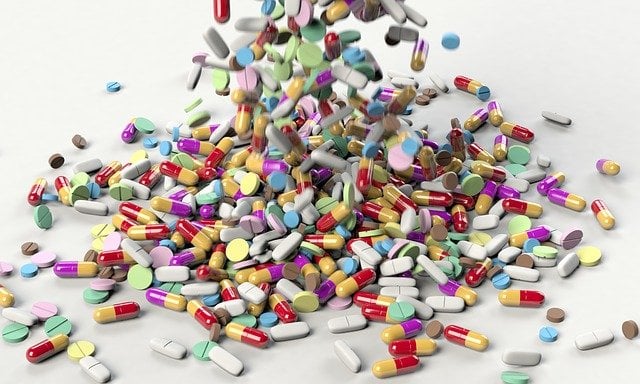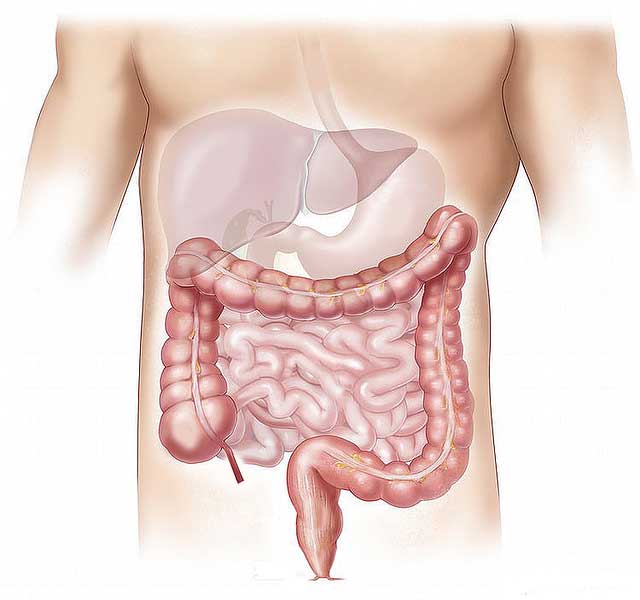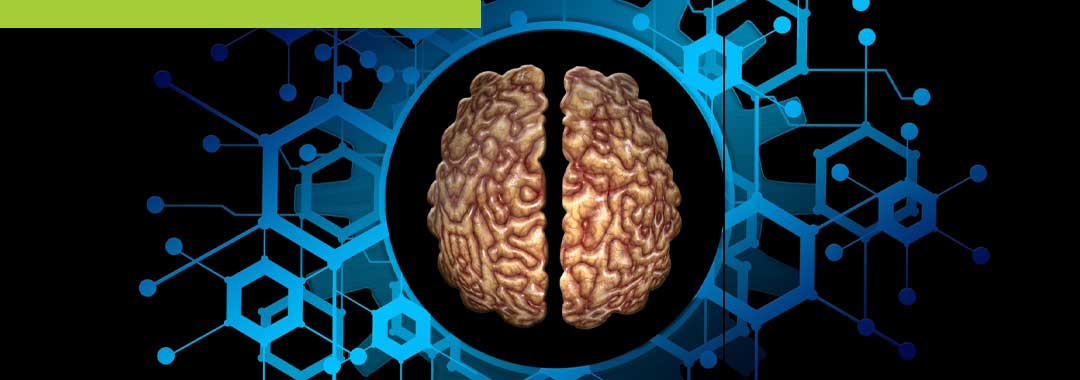According to the World Health Organization, cannabidiol (CBD) is considered to have a relatively high safety profile. While there has already been a considerable amount of research dedicated to its properties and potential side effects, a recent surge in popularity has raised significant concerns regarding CBD and its interactions with other drugs.

What are drug interactions and how do they occur?
When you take different kinds of medication, it is vital to understand: what are drug interactions, and do how they occur? This is because one type of drug can drastically change the way another will metabolize or function in your body, which is why nurses and doctors will always ask what kind of medications you are on.
Some drugs can cancel out the effects of each other, while others may strengthen their effects, which could be potentially life threatening under certain scenarios. For instance, if you are suffering from a blood clot, you will probably be put on a blood thinning medication. However, some compounds can enhance the effects of a blood thinner, which may be dangerous if you encounter a situation where you are injured or suffer a cut, as your ability to mitigate the bleeding could be impeded by the mix of medications.
Similarly, all phytocannabinoids, including CBD, are designed to influence each other when they interact, which causes the compounds to have responses that are different from how they function individually. This is through a process known as the “entourage effect”, which is the term that researchers have coined to describe the complex interplay between different phytocannabinoids.
Sometimes, one cannabinoid can cancel out the effects of others, such as the ability that CBD has to mitigate the intoxicating effects of delta-9-tetrahydrocannabinol (THC) by suppressing its ability to bind with specific cannabinoid receptors.
The Role of the Metabolism
When a substance is ingested, our body has several different mechanisms that are used to absorb it, and this is the role of the metabolism. Much of these metabolic processes take place in the liver, as it produces many of the enzymes that work to break down these materials.
In terms of CBD products, different methods are able to utilize different metabolic mechanisms in the body, which can determine the length of time it takes for CBD to enter your system. For example, when you ingest a capsule, drink, or gummy, those substances have to go through the digestive process in order to be metabolized, which means that they can take longer to reach your bloodstream.
However, if you hold a tincture under the tongue, it will be absorbed by the sublingual gland, and this enables for a much faster process of absorption because the substances end up completely bypassing your digestive system. In this manner, less compounds are absorbed by digestive enzymes along the way and the CBD will go to your bloodstream relatively faster.
A primary system involved with drug absorption is the cytochrome P450, as its enzymes are responsible for metabolizing up to 90% of drugs. It is also what doctors typically use to gauge the pharmacokinetics of many different substances. This is significant in terms of cannabinoids because CBD has the ability to interfere with the way cytochrome P450 is able to metabolize other drugs. This is why it is so important to tell your doctor about any medications you are on if you are thinking about trying a new CBD regiment.

What Drugs Should Not be Taken with CBD
CBD affects cytochrome P450 enzymes because it is able to prevent other drugs from being absorbed first, which can lead to a number of negative repercussions. In this manner, CBD acts as a “competitive inhibitor”, and it competes with other substances in order to take priority for metabolization. So, what drugs should not be taken with CBD?
Warfarin: Some research has indicated that CBD can enhance the effects of this blood thinner, which can increase risks of bleeding.
Theophylline: This medication works as a bronchodilator for conditions like asthma as well as other lung diseases, and some research has shown that its effects can be mitigated by cannabinoids.
Clobazam: CBD has shown to significantly increase the side effects of Clobazam (an anti-seizure drug), which is drowsiness.
Valproate: Like Clobazam, Valproate is an anti-seizure drug, and when taken with CBD, it could potentially raise liver enzyme counts, which can lead to liver injury.
Any drug that is metabolized by the cytochrome P450 system should be considered when taken alongside CBD. Here is a comprehensive list of the different types of medication that could be affected:
Steroids / corticosteroids like hydrocortisone, cortison, prednisone, triaciolome, and
dexamethasone.
Hydroxymethylglutaryl-CoA (HMG CoA) reductase inhibitors, also known as statins, including atorvastatin, fluvastatin, lovastatin, pravastatin, pitavastatin, simvastatin, as well as rosuvastatin.
Calcium channel blockers like amlodipine, diltiazem, felodipine, isradipine, nicardipine, nifedipine, nisoldipine, and verapamil.
Antihistamines, including brompheniramine. cetirizine, chlorpheniramine, clemastine, diphenhydramine, fexofenadine, and loratadine.
Prokinetics, which are motility drugs, with examples being domperidone, metoclopramide, levosulpiride, renzapride, and prucalopride.
Antiretrovirals for HIV, such as abacavir, didanosine, emtricitabine, lamivudine, stavudine, tenofovir alafenamide, disoproxil fumarate, in addition to zidovudine.
Immune modulators, including immune globulins, immunosuppressive agents, immunostimulants, as well as bacterial and viral vaccines.
Benzodiazepines like alprazolam, clobazam, clonazepam, clorazepate, chlordiazepoxide, diazepam, estazolam, and lorazepam.
Antiarrhythmics, which include amiodarone, flecainide, procainamide, propafenone, quinidine, and tocainide.
Antibiotics such as amoxicillin, amoxicillin-clavulanate, doxycycline, cephalexin, ciprofloxacin, clindamycin, metronidazole, azithromycin, sulfamethoxazole-trimethoprim, and levofloxacin.
Anesthetics like barbiturates and tranquilizers, including amobarbital, methohexital, thiamylal, etomidate., ketamine, and propofol.
Antipsychotics, or dopamine receptor antagonists, including aripiprazole, asenapine, cariprazine, clozapine, lurasidone, olanzapine, quetiapine, risperidone, and ziprasidone.
Antidepressants such as citalopram, escitalopram, fluoxetine, fluvoxamine, paroxetine, sertraline, vortioxetine, and vilazodone.
Anticonvulsants, which work as anti-seizure medications like acetazolamide, carbamazepine, clobazam, clonazepam, ethosuximide, fosphenytoin, gabapentin, lacosamide, lamotrigine, levetiracetam, methsuximide, nitrazepam, oxcarbazepine, paraldehyde, phenobarbital, phenytoin, primidone, topiramate, valproic acid, vigabatrin, felbamate, tiagabine hydrochloride, and zonisamide.
Beta blockers such as acebutolol, atenolol, betaxolol, betaxolol, bisoprolol fumarate, carvedilol, esmolol, labetalol, metoprolol, nadolol, nebivolol, penbutolol, propranolol, sotalol, and timolol.
Angiotensin II Blockers, or ARB, include azilsartan, candesartan, eprosartan, irbesartan, losartan, olmesartan, telmisartan, and valsartan.
Proton-Pump Inhibitors, or PPIs, include omeprazole, lansoprazole, pantoprazole, rabeprazole, esomeprazole, as well as dexlansoprazole.
Non-Steroidal Anti-Inflammatory Drugs, or NSAIDs, such as aspirin, celecoxib, diclofenac, diflunisal, etodolac, ibuprofen, indomethacin, ketoprofen, ketorolac, nabumetone, naproxen, oxaprozin, piroxicam, salsalate, sulindac, tolmetin.
Oral Hypoglycemic Agents include examples like sulfonylureas, meglitinides, biguanides, thiazolidinediones, α-Glucosidase inhibitors, DPP-4 inhibitors, SGLT2 inhibitors, and cycloset.
Sulfonylureas, which are anti-hypoglycemic agents, like glynase, micronase, amaryl, diabinese, glucotrol, tolinase, and tolbutamide.
Side Effects of CBD
Although CBD is considered to have a high safety profile, larger doses have been associated with certain side effects, including sleepiness, nausea, dizziness, anxiety, and dry mouth.
Thankfully, CBD does not cause the most notorious side effect that is associated with commercial cannabis, which is intoxication. The only cannabinoid that is capable of inducing that kind of effect is THC, which is why federal guidelines limit it to 0.3% or less in hemp.
Is CBD FDA Approved?
Confusingly, while hemp is now legal, CBD itself has not yet been approved by the FDA (Federal Drug Administration) for any type of medical use, and they have made it clear that they are going to continue cracking down on CBD companies that advertise their products as being a treatment or cure for any type of condition.
However, the FDA has stated on several occasions that they are aware of the great demand for CBD products, and so they have opened an ongoing dialogue regarding the issue. Previously, they have enabled an open comment section on their website, in addition to holding conferences where experts and industry leaders were invited to speak their opinions on the subject.
Ultimately, the problem comes down to money, because it can be extremely expensive to conduct the trials that are required for the FDA to approve products for medicinal use. Not many companies can spare the millions of dollars that is needed for such extensive research to be done. Hopefully, this process can somehow be expedited, as the demand for CBD products seems to be growing exponentially.
Another adverse result from this lack of policy is that many CBD products are largely untested and unregulated. That is why it is so important to choose a reputable company that utilizes independent laboratory testing in order to ensure the integrity of their ingredients. In addition, it is extremely important to always consult your physician before starting any new supplement, including CBD.

